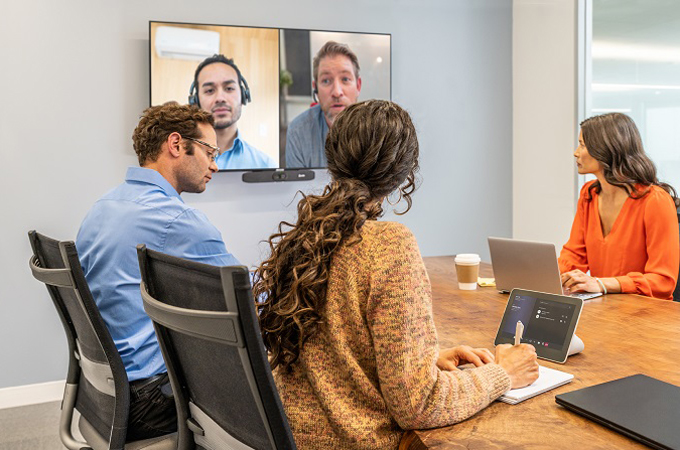
Reset of workplaces needed for effective hybrid work
DUBAI, August 18, 2022
Companies need to urgently implement flexible and future-proof technology solutions in the workplace as part of their overall hybrid strategy and a large part of the return to office (RTO) effort by organisations now needs to be centered on redesigning and repurposing workspaces, says a study.
The new discussion paper titled A Reset for Return to the Office? published by Poly, a premium audio and video products company, in partnership with workplace research platform Worktech Academy, focuses on companies’ race against time to ensure their onsite and offsite teams have the ultimate equal work experience albeit glaring challenges such as reluctance to return to the office (RTO).
The whitepaper highlights emerging trends and insights that are shining the spotlight on the urgent need to create new thinking, define the main challenges and explore emerging opportunities around hybrid working.
Centered on a successful and effective RTO formula, the research findings reveal that most organisations are still struggling to find the perfect balance that would ultimately boost their overall productivity regardless of the location of their respective teams.
“Our whitepaper has unearthed an emerging trend that’s preventing organisations to reap the benefits of hybrid working. The primary goal for this research was to identify and subsequently nip these challenges in the bud and to present organisations with ideas that will help them create a more seamless workplace re-entry experience for employees as part of their journey to a solid hybrid culture,” said Bob Aoun, MEA Regional Sales Director at Poly.
The detailed report calls for better cross-functional collaboration between different departments of organisations as well as closer attention to the varying demographics and behaviours of the workforce, and the culture that drives enterprises forward.
The new paper comes hot on the heels of another Poly survey that revealed that having an effective hybrid strategy is critical for retaining talent, enabling greater productivity and ensuring workers can meet and succeed as equals.
Emerging challenges
The research highlights four emerging challenges that are largely preventing a seamless RTO experience including changing employee expectations, the lack of meeting equality between remote and on-premises workers, conference rooms that are not adequately equipped for video conferencing, and increased IT management complexity.
Siloed company structures also emerged as not being equipped for the type of cross-disciplinary thinking and decision-making that would create a more enticing RTO. This has resulted in organizations deploying ‘guerrilla tactics’ to overcome some of these barriers and get things done.
Road map to hybrid
According to the new Poly and Worktech Academy research that included a London roundtable with senior leaders in technology and design, the focus now shifts to the urgent implementation of flexible and future-proof technology solutions in the workplace as part of the overall hybrid strategy.
A large part of the RTO effort by organizations around the world now needs to be centered on redesigning and repurposing workspaces for a hybrid era. This is an acknowledgment that the traditional office no longer fits the demands of a more flexible workforce for lower densities, better amenities and more opportunities for face-to-face interaction as well as video calling and remote collaboration facilities.
Technology-driven mindset
To facilitate a smooth transition to RTO, technology plays a crucial role in animating the workplace and catalysing its interactions. This role, according to the paper, extends from the use of workplace apps, which use prompts and nudges to bring the right people together in the right place at the right time, to the use of advanced and immersive AV systems to communicate company branding and culture.
According to another research by Poly and Worktech Academy titled Journey to Hybrid Working, six out of ten firms believe they will lose new and existing talent if they do not figure out hybrid work, but less than half of all organisations are fully prepared with a strategy for hybrid working and 37 per cent are only prepared in the short-term.
The new report notes that technology repositions the office for the new era as an intelligent hub for remote as well as face-to-face collaboration. A successful RTO experience requires a responsive working environment that uses sensors to provide real-time feedback on patterns of building use. This is over and above ensuring that meeting rooms in organizations are properly equipped for video conferencing.
“Implementing a successful RTO strategy depends on three essential realizations, which include a new culture that drives an organization, not simply the IT infrastructure or design plan; a new corporate mindset that’s anchored on separate business units of IT, HR and facilities working together in a more holistic way; and a new, more granular and sophisticated way of looking at the workforce beyond basic calculations of headcount,” noted Aoun. -TradeAraabia News Service







